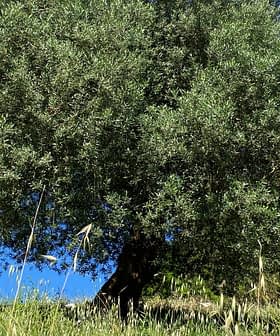Consortium of Italian Growers Calls for 'Serious Action' in Tough Season
The national consortium Italia Olivicola is a new organization bringing together more than 250,000 olive growers from fifteen regions.
Italia Olivicola is a new national consortium that brings together more than 250,000 olive growers organized into 57 organizations of producers from 15 regions, corresponding to 50 percent of the national sector, with a €54 million annual turnover.
This is a difficult season, and we call for serious action to allow olive growers to increase production and better face the increasingly frequent seasonal issues.
The organization was formed through a merger of the national consortium of olive growers (CNO) and the national union of producers (Unasco) with the aim to promote the development of the sector through four essential steps summarized in a statement at its launch: concentrating supply, improving producers’ incomes, promoting a modern and cohesive supply chain, and defending the Made in Italy quality against fraud and counterfeiting.
“With more than ninety years of history in total, the union between CNO and Unasco gave life to a new story for Italian olive growing,” said Gennaro Sicolo, who was elected President of Italia Olivicola after leading CNO for seven years.
“I am proud to be part of this project, which is so important for hundreds of thousands of producers and their communities. We will work to strengthen Italian olive growing, in terms of production capacity and ability to face markets at a domestic and international level. Italia Olivicola has the ambition to be the privileged interlocutor of the industrial and commercial elements of the supply chain, as well as of the national and regional institutions, in order to jointly build a strategy of development, modernization and consolidation of the sector.”
The role of vice chairman was filled by Luigi Canino. “We will give concrete answers to the growers who honor Italia Olivicola with their trust,” said the former president of Unasco. “We are ready to face up to new challenges in order to guarantee the right value to the Italian production and maintain its undisputed leadership in quality, biodiversity, and sustainability of a system guaranteed by traceability and product certification.”
The challenges that must be tackled immediately by the new organization stem from the preliminary findings on the current harvest. According to initial reports, the volumes produced by Italian growers during the 2018 – 19 campaign could turn out to be significantly lower than the 429,000 produced last year.
“This is a difficult season, and we call for serious action to allow olive growers to increase production and better face the increasingly frequent seasonal issues,” Sicolo pointed out, specifying that the poor harvest led to the loss of one million working days for the fixed-term contract workers employed by the olive farms.
“We must consider that Puglia, Sicily and Calabria absorb 47 percent of the fixed-term labor force of the entire national agriculture, and at the end of this difficult season, we urge an inter-ministerial action to put in place specific initiatives in order to revitalize olive oil cooperatives and mills, with the prospect of a new national olive oil plan,” the president said.
With this pragmatic attitude, the chairmen of the new consortium set up an inauguration in great style, in the presence of Pope Francis. During the general audience in St. Peter’s Square, 1,500 producers gave the Holy Father a selection of the best Italian extra virgin olive oils, receiving his blessing.
The first official event attended by Italia Olivicola took place in London, during the third Week of Italian Cuisine in the World, organized by the Ministry of foreign affairs and international cooperation and the Ministry of agriculture, food, forestry and tourism (Mipaaft) to promote the Made in Italy and its distinguishing features of quality, sustainability, food security, identity, territory and biodiversity.
The Mediterranean Diet and the value of Italian extra virgin olive oil were the topics of a meeting organized last month by the Director of the Italian Institute of Culture, Marco Delogu. Italia Olivicola’s delegates participated in a seminar on the organoleptic characteristics of the Liquid Gold, and guided the guests in a sensory journey through the best Italian oils.
“We certainly could not miss this important event to promote Italian extra virgin olive oil in the world,” commented Sicolo. “We will take every opportunity to reaffirm the nutraceutical value of our high-quality products, and to promote the innumerable benefits of the Mediterranean Diet.”








